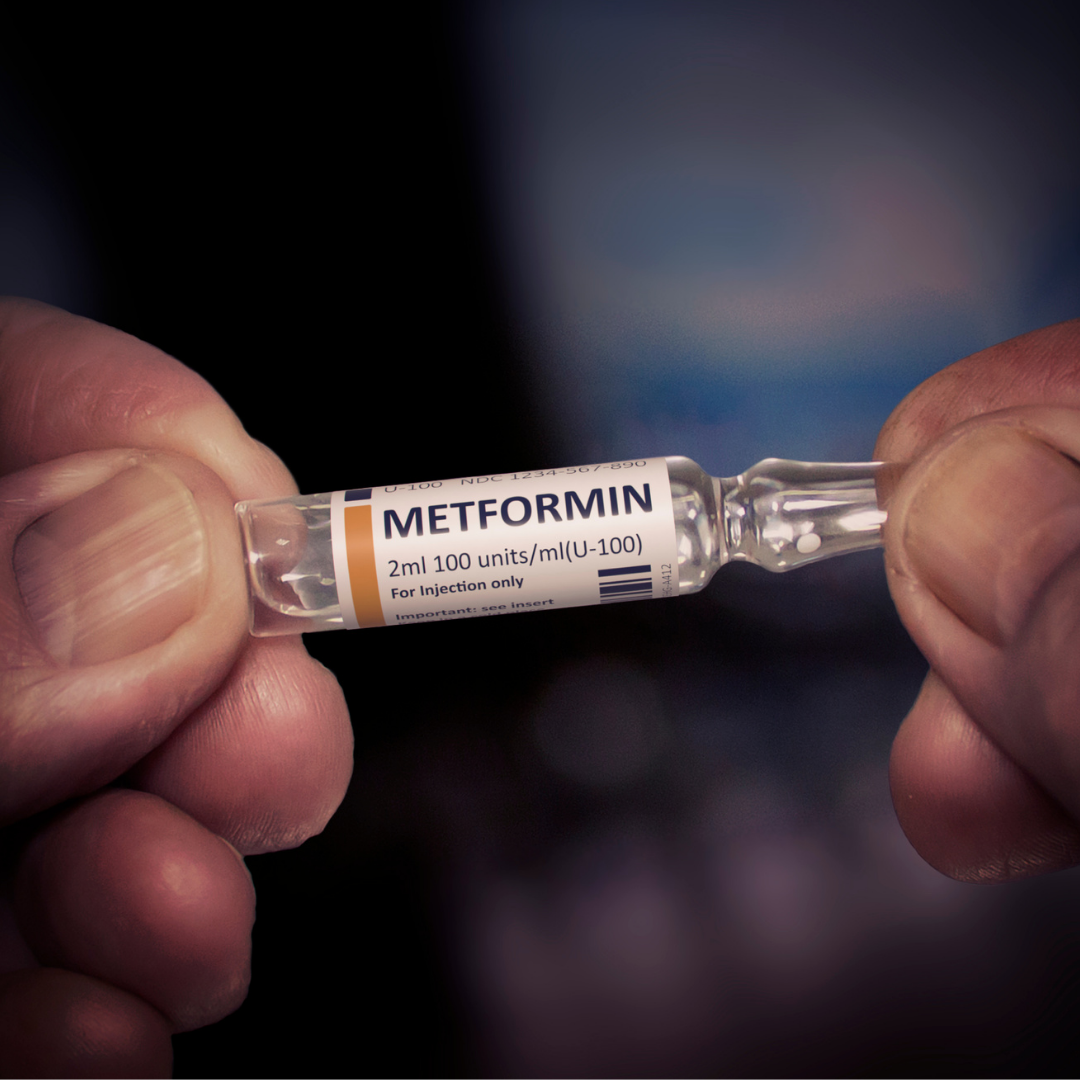KBW | Medications and Their Nutrient Depletion Side Effects

70% of Americans take at least one prescription medication
*according to the National Institute on Aging and the Mayo Clinic
First off - this is not a medication-shaming blog. I see that far too often in the “holistic health” world, and I don't think it's right. I think that sometimes you need meds. And that’s ok. (And...sometimes you don’t need them...and they’re handed to you to mask your symptoms instead of getting to the root cause...but that’s a blog for another day!).

𝗧𝗛𝗜𝗦 𝗜𝗦 𝗔𝗟𝗟 𝗔𝗕𝗢𝗨𝗧 𝗘𝗗𝗨𝗖𝗔𝗧𝗜𝗢𝗡 𝗔𝗡𝗗 𝗔𝗪𝗔𝗥𝗘𝗡𝗘𝗦𝗦.
𝙒𝙝𝙮? Because I’ve had countless clients come to me on meds, and when I ask if they are aware of the nutrient depletion risks and ask if they’ve been tested for depletions, given education on how to avoid them, etc...the answer. IS. ALWAYS. NO. 🤦♀️
Seriously. Not one single person has gone, “Oh yes. My prescribing provider made me aware that metformin can deplete my B12 and lead to peripheral neuropathy, and they have tested me for my levels and gave me a pamphlet on what to eat and how to supplement”. 𝐍𝐨𝐩𝐞. 𝐍𝐨𝐭 𝐨𝐧𝐞.
No one knows this info!! And PEOPLE DESERVE TO KNOW THIS INFORMATION. Because education and knowledge are power, and with that, you have the power to enact change and take charge of your health. So let's discuss some commonly prescribed medications and their potential side effects so you and your loved ones can make informed decisions.
Statins

What Are Statins?
This is a very commonly prescribed medication. Statins inhibit the enzyme HMG CoA reductase, which plays a critical role in cholesterol production. By reducing cholesterol synthesis, the liver can work to remove preexisting LDL cholesterol in the bloodstream.
(examples: Atorvastatin, Lovastatin, Simvastatin, Rosuvastatin).
Nutrients Depleted by Statins
HMG CoA reductase is also involved in the synthesis of Coenzyme Q10, which is essential for energy production in mitochondria. This is a well-studied phenomenon, yet I haven't heard of many cardiologists routinely recommending CoQ10 supplementation.
Coenzyme Q10 depletion is a serious concern and may result in heart failure, muscle pain and weakness, irregular moods, and irritability and should not be ignored.
What to do about it:
Talk to your medical provider about supplementing with CoQ10.
A loved one of mine is on statins due to a heart attack, and I refuse to let him die of heart failure from taking the very thing that's supposed to protect his heart. So I 𝙞𝙣𝙨𝙞𝙨𝙩 he take CoQ10.
Reference: Qu, H., Guo, M., Chai, H., Wang, W. T., Gao, Z. Y., & Shi, D. Z. (2018). Effects of Coenzyme Q10 on Statin-Induced Myopathy: An Updated Meta-Analysis of Randomized Controlled Trials. Journal of the American Heart Association, 7(19)
ACE INHIBITORS

What are ACE Inhibitors?
ACE inhibitors block the Angiotensin Converting Enzyme (ACE) that normally reacts to produce Angiotensin II, a peptide hormone that narrows blood vessels and raises blood pressure.
(ex. Lisinopril, Benazepril, Enalapril, Ramipril, Quinapril)
Nutrients Depleted by ACE Inhibitors
Certain ACE inhibitors bind to zinc in the body. This bound form can’t meet the body’s needs and gradually leads to zinc depletion.
What to do About It:
Talk to your medical provider about evaluating your zinc levels and potentially supplementing. One of the top food sources for zinc is oysters, by the way!
Reference: Suliburska, J., Skrypnik, K., Szulińska, M., Kupsz, J., Markuszewski, L., & Bogdański, P. (2018). Diuretics, Ca-Antagonists, and Angiotensin-Converting Enzyme Inhibitors Affect Zinc Status in Hypertensive Patients on Monotherapy: A Randomized Trial. Nutrients, 10(9), 1284.
ANTACIDS

𝗪𝗵𝗮𝘁 𝗮𝗿𝗲 𝗮𝗻𝘁𝗮𝗰𝗶𝗱𝘀?
These are also VERY commonly prescribed by GI Drs and PCPs for complaints of heartburn or acid reflux.
Ex: Tums, Mylanta, Rolaids
What do antiacids do?
Antacids neutralize stomach acid, which is why they are often used for heartburn, aka stomach acid that refluxes up the esophagus causing the burning sensation.
𝐍𝐮𝐭𝐫𝐢𝐞𝐧𝐭𝐬 𝐝𝐞𝐩𝐥𝐞𝐭𝐞𝐝 𝐰𝐢𝐭𝐡 𝐫𝐞𝐜𝐮𝐫𝐫𝐞𝐧𝐭 𝐮𝐬𝐞:
Neutralizing stomach acid weakens the breakdown of food into its constituent nutrients. This results in moderate deficiencies in several nutrients such as iron, B12, calcium, phosphate salts, and thiamine.
𝗪𝗵𝗮𝘁 𝘁𝗼 𝗱𝗼 𝗮𝗯𝗼𝘂𝘁 𝗶𝘁?
Talk to your provider about your risks, given your usage length and frequency, and ask about multivitamins to mitigate depletions.
For extra credit - work with your provider to find out WHY you have heartburn and treat it at its ROOT CAUSE, and then you won't need to worry about those antacids at all!
Some things I personally look for in clients with heartburn: hiatal hernia, H Pylori, and hypochlorhydria.
ANTIBIOTICS

What are Antibiotics?
Most people are pretty aware of this commonly prescribed class of medications. Antibiotics are used to fight bacterial infections in the body for anything from ear infections to strep throat to skin infections and more.
Ex: 𝘗𝘦𝘯𝘪𝘤𝘪𝘭𝘭𝘪𝘯𝘴 (amoxicillin, ampicillin, penicillin VK), 𝘍𝘭𝘶𝘰𝘳𝘰𝘲𝘶𝘪𝘯𝘰𝘭𝘰𝘯𝘦𝘴 (ciprofloxacin, levofloxacin, and ofloxacin), 𝘈𝘮𝘪𝘯𝘰𝘨𝘭𝘺𝘤𝘰𝘴𝘪𝘥𝘦𝘴 (gentamicin, streptomycin).
𝗪𝗵𝗮𝘁 𝗱o antibiotics do?
Antibiotics fight specific bacteria. This is why there are so many different kinds. For example, azithromycin is commonly used for sinus infections, whereas amoxicillin is commonly used for ear infections, and doxycycline is commonly used for acute Lyme disease. Each type of antibiotic fights off different types of bacteria.
𝐍𝐮𝐭𝐫𝐢𝐞𝐧𝐭𝐬 𝐝𝐞𝐩𝐥𝐞𝐭𝐞𝐝 𝐰𝐢𝐭𝐡 𝐫𝐞𝐜𝐮𝐫𝐫𝐞𝐧𝐭 𝐮𝐬𝐞:
All of these antibiotics can lead to calcium depletion.
Aminoglycosides can create an imbalance of magnesium & potassium which can lead to fatigue, weakness, muscle cramps, and even more serious complications like high blood pressure and irregular heartbeat.
Another major problem with antibiotics is they can't differentiate very well between good and bad bacteria. So when you take antibiotics, you may kill all the good bacteria we WANT there.
That good bacteria is working for us in so many ways:
1. It helps us break down food and absorb more nutrients.
2. They synthesize many vitamins like K and B
3. They work to help keep the bad bacteria at bay as well
Remember - antibiotics aren't bad; we just need to be aware of the consequences so we can mitigate them. One thing you can do is when you take antibiotics, make sure you build your good bacteria back up upon completion.
𝗪𝗵𝗮𝘁 𝘁𝗼 𝗱𝗼 𝗮𝗯𝗼𝘂𝘁 𝗶𝘁?
If you want more information on my probiotic recommendations, head to my “Are We Wasting Our Money on Probiotics?” blog (hint: the answer is no 😉)
BIGUANIDES

𝗪𝗵𝗮𝘁 𝗮𝗿𝗲 𝗕𝗶𝗴𝘂𝗮𝗻𝗶𝗱𝗲s?
Biguanides are oral antihyperglycemic drugs responsible for improving glucose tolerance in type 2 diabetes patients. It is also often used with PCOS management.
They manage these diseases by decreasing glucose production, decreasing intestinal absorption of glucose, and improving insulin sensitivity.
The most common example is M̲e̲t̲f̲o̲r̲m̲i̲n̲.̲
Nutrients Depleted by Biguanides
Metformin reduces the absorption of vitamin B12, which in turn reduces associated vitamins and minerals such as calcium. Chromium deficiency also may occur and contribute to insulin resistance. Magnesium depletion has also been reported. Metformin is most "famous," however, for its depletion of B12 with long-term usage.
What to do about it:
The most accurate way to assess your B12 status is with a test called MMA (methylmalonic acid) *not* serum B12. Talk to your provider about an MMA test. Studies show the best way to increase B12 status w/metformin use is with injection *not oral*.
Reference: Aroda et al. (2016). Long-term Metformin Use and Vitamin B12 Deficiency.
The extra credit version? Alter your diet and lifestyle by working with a trained professional to naturally roll back your insulin resistance and eliminate the need for metformin and discuss supplementation of berberine and other blood sugar-controlling supplements with your medical professional.
I hope you found this series helpful since it is a topic I don't see discussed ever!
I’ll do my part and put it out on the world wide web. Can you do yours and help me share it? Use the links below to share this with loved ones!👇
Are you ready to start feeling better?
My team and I are here to partner with you on your health goals.
Find out more about working with us here ↓




